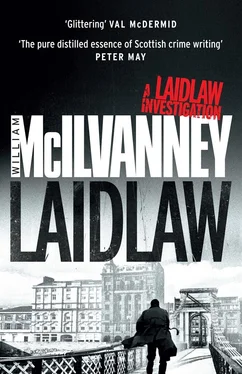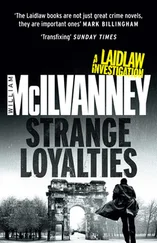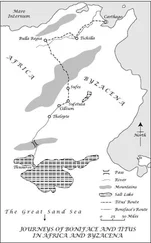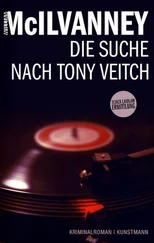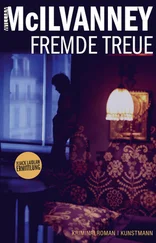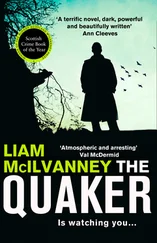William McIlvanney - Laidlaw
Здесь есть возможность читать онлайн «William McIlvanney - Laidlaw» весь текст электронной книги совершенно бесплатно (целиком полную версию без сокращений). В некоторых случаях можно слушать аудио, скачать через торрент в формате fb2 и присутствует краткое содержание. Год выпуска: 1977, ISBN: 1977, Издательство: Sceptre, Жанр: Полицейский детектив, на английском языке. Описание произведения, (предисловие) а так же отзывы посетителей доступны на портале библиотеки ЛибКат.
- Название:Laidlaw
- Автор:
- Издательство:Sceptre
- Жанр:
- Год:1977
- ISBN:0857869868
- Рейтинг книги:5 / 5. Голосов: 1
-
Избранное:Добавить в избранное
- Отзывы:
-
Ваша оценка:
- 100
- 1
- 2
- 3
- 4
- 5
Laidlaw: краткое содержание, описание и аннотация
Предлагаем к чтению аннотацию, описание, краткое содержание или предисловие (зависит от того, что написал сам автор книги «Laidlaw»). Если вы не нашли необходимую информацию о книге — напишите в комментариях, мы постараемся отыскать её.
Laidlaw — читать онлайн бесплатно полную книгу (весь текст) целиком
Ниже представлен текст книги, разбитый по страницам. Система сохранения места последней прочитанной страницы, позволяет с удобством читать онлайн бесплатно книгу «Laidlaw», без необходимости каждый раз заново искать на чём Вы остановились. Поставьте закладку, и сможете в любой момент перейти на страницу, на которой закончили чтение.
Интервал:
Закладка:
Laidlaw left Bud Lawson with McKendrick in the waiting-room and went to check. In the long room the mortuary attendant was working against the background of the rectangular doors, like refrigerators in which three bodies could be stored. He nodded pleasantly as Laidlaw came up.
The girl’s naked body lay on a metal table with raised edges. The man was washing it. Water sluiced down the runnels at the edge of the table. Laidlaw stood beside him, noted again the mole, as if it might have been make-up that would wash off. He was thinking of Mrs Lawson. The man was very deft, had an obvious expertise in washing dead bodies. Laidlaw remembered that his name was Alec and he liked bowling.
‘Been an attractive lassie,’ Alec said.
‘I have who I think is the father with me.’
Alec waited for a moment longer.
‘Nearly there,’ he said. ‘Give me a coupla minutes to get her dressed. She had a bad time, eh? Any ideas?’
‘Somebody who was in Glasgow on Saturday night.’
‘I was visiting relatives in Edinburgh,’ Alec said. ‘Score me off your list.’
Neither of them had smiled. The sounds remained completely separate from their expressions, a ritual form of words where there was no conversation.
‘Tell me when you want us,’ Laidlaw said.
In the waiting-room Bud Lawson was still following the relentless parade of his own thoughts, like an Orange March nobody dare cut across. In the car he had briefly expressed anger at Laidlaw’s attitude of this morning, his insistence that it was too early to jump to conclusions. But now even Laidlaw had become irrelevant to whatever reactions were massing in Bud Lawson. He was going somewhere alone.
When Alec came in, Laidlaw took Bud Lawson through to where the body was. It lay on a white metal trolley, neutered by wrappings that were like cheese-cloth and familiar to Laidlaw. No part of the person it had been was visible. It was already a parcel for the law courts.
Laidlaw positioned Bud Lawson at its head. Alec was at the other side of the trolley. Even the head itself was tightly wrapped, a standard practice because the head had frequently to be opened in post mortem. The only loose part of the mummy-cloth was a triangular flap over the face. It was this that Alec lifted, like a window into death.
The face was completely composed, the mouth held gently shut by the cloth beneath the chin. Her youthfulness was blinding. Framed in white, she was like an involuntary nun.
Bud Lawson groaned and buckled. Laidlaw gripped him and was immediately shaken off. Bud Lawson straightened up. He stared down at his daughter. Nothing happened in his eyes. To Laidlaw watching, having seen so many reactions to the same fact in this same cold place, this was the strangest, because it was no reaction. It was like corpse confronting corpse. Bud Lawson stared at his dead daughter, looked steadily across at Alec and nodded once. And that was that.
Laidlaw was glad when the formalities were finished and they stood in the street outside.
‘We’ll want a photograph,’ Laidlaw said.
‘Whit?’
‘Of Jennifer.’
‘See ma wife.’
Bud Lawson was watching traffic pass in the street.
‘Well, would you come down to the Station with us now?’
‘Whit fur?’
‘There may be questions.’
‘Ah’m in nae mood fur questions. Ye can come tae the hoose if there’s anything tae ask.’
‘Well, let us run you home then.’
‘Ah don’t want yer bloody run.’
Bud Lawson walked away. Laidlaw and McKendrick were left to report to the Central Division. Laidlaw, having checked that he wasn’t wanted for anything else today, gave Milligan the notes he had taken this morning and agreed to meet him at nine o’clock the next morning for the post mortem. He phoned the Commander and explained. The Commander was agreeable to Laidlaw’s going off. ‘It’s been a long weekend for you. Anyway, I’m calling the new D.C. — Harkness — in today. I’ll get him started. He’ll be working with you.’
Driving home, Laidlaw put the day’s events in the left-luggage department of his mind. Tomorrow would be soon enough to collect them. He needed rest, a good sleep. Only one image wouldn’t be shelved, persisted: Bud Lawson’s reactionless face as he walked away, following his own compulsive thoughts like inaudible flutes. Laidlaw wondered where they would lead him.
9
Bud Lawson stood at the window, looking out on Duke Street. How often had Jennifer come towards this window from Fraoli’s café? She had always liked visiting Bud’s sister Maggie Grierson and her husband Wullie. In moving back and forward across this street she had grown up, lost the fairness of her hair and become dark, abandoned what Wullie called her ‘schoolboard specs’, changed her mind about what was her favourite pop-group (‘Mair often than Ah chinge ma semmet,’ Wullie said), developed breasts and secrecy. She had always said that this was where she would like to stay. ‘This is the real Glesca,’ Maggie had told her. Her absence from it now was not believable.
In the room behind, Maggie Grierson sat looking at her brother through her tears. She knew exactly what he was seeing. Duke Street’s drab width had been her home for nearly forty years, and there was nowhere else she wanted to go. For her it had kept the quality of the old Glasgow, a sense of the street, a realisation that streets were places for living in, not just passing through. She knew a lot of the people in its three-up tenements. She knew who was never out the bookie’s, who drank in the Ballochmyle Bar, who ran up a lot of tick in Mulholland’s Dairy. The places in the street had become as familiar to her as her own furniture.
But now it was all memories. It seemed to her it would always be closed, as it was today. From now on it would always be Sunday.
She saw Bud looking down towards Gateside Street. Behind those tenements was the swing-park where Jennifer had often played. One summer evening she had come from there herself and knocked at the door of the Bristol Bar, where Wullie was having a pint. ‘It’s time to go home, Uncle Wullie,’ she had told him. Nine she would be at that time. The men had kept it up on Wullie for weeks.
This house had been full of her. Their weeks revolved around her coming, and she always came. Growing up hadn’t distanced her from them at all. Remembering her worth and the hopes they had had for who she would be, Maggie found nothing outside herself that measured her feeling. Outside, there were only the shuttered fronts of the fruit shop where she had waited in the queue and the bakehouse opposite, where she liked to go for hot rolls on the mornings when she had stayed. There was only the walk up Cumbernauld Road to Alexandra Parade and the park where they’d often walked. There were only the few things of hers that Maggie had kept, like the smelling-salts she’d bought as a present for Maggie when she was seven, thinking it was perfume.
Beyond that, there was only Maggie’s faith in Jennifer. Her inability to make anybody else but Wullie and herself see how much had been lost was a fiercesome bitterness. She cried again. Not even Jennifer’s own father had appreciated her. Looking at her younger brother, Maggie found no forgiveness for him. Bud was a mean-spirited man. He wouldn’t give you the kiss of life without counting the breaths you owed him. He had never fully accepted Wullie as a person because he had been baptised a Catholic, although Wullie hadn’t been in a church since he left school. When Bud had come looking for Jennifer this morning, he had been like the Gestapo checking a suspect. Ever since he had found out about that Catholic boy called Tommy, he hadn’t allowed her to stay the night with them, in case they were shielding her. They would have done, too. Telling them this afternoon, he had acted as if Jennifer had affronted him in getting murdered. He still looked more angry than sad.
Читать дальшеИнтервал:
Закладка:
Похожие книги на «Laidlaw»
Представляем Вашему вниманию похожие книги на «Laidlaw» списком для выбора. Мы отобрали схожую по названию и смыслу литературу в надежде предоставить читателям больше вариантов отыскать новые, интересные, ещё непрочитанные произведения.
Обсуждение, отзывы о книге «Laidlaw» и просто собственные мнения читателей. Оставьте ваши комментарии, напишите, что Вы думаете о произведении, его смысле или главных героях. Укажите что конкретно понравилось, а что нет, и почему Вы так считаете.
